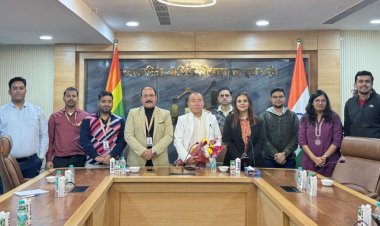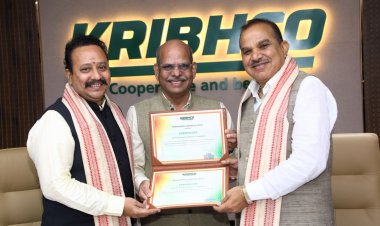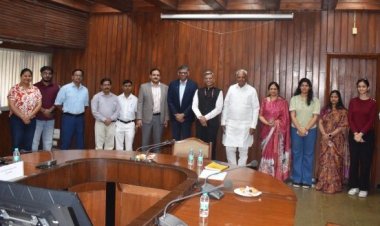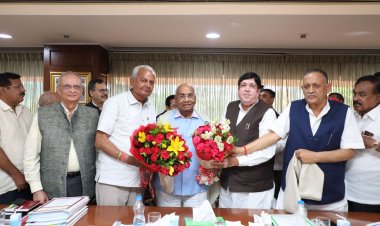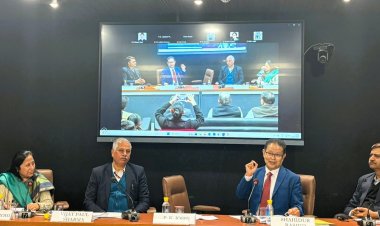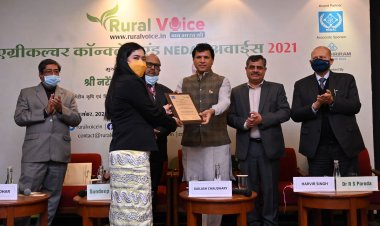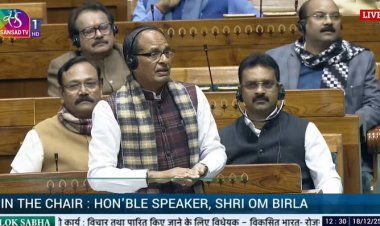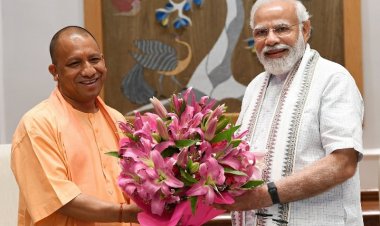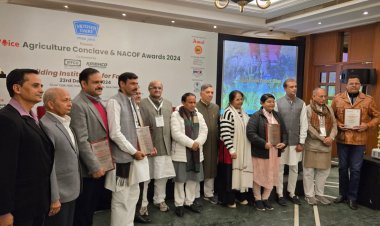Cooperative university will be better than traditional universities: Jamia VC Najma Akhtar
A national webinar on cooperative university was organized by the National Cooperative Union of India (NCUI). It was held at a time when establishing a cooperative university is key to the agenda of the government, and Amit Shah, Union Cooperation Minister, has constantly highlighted this priority of the government.
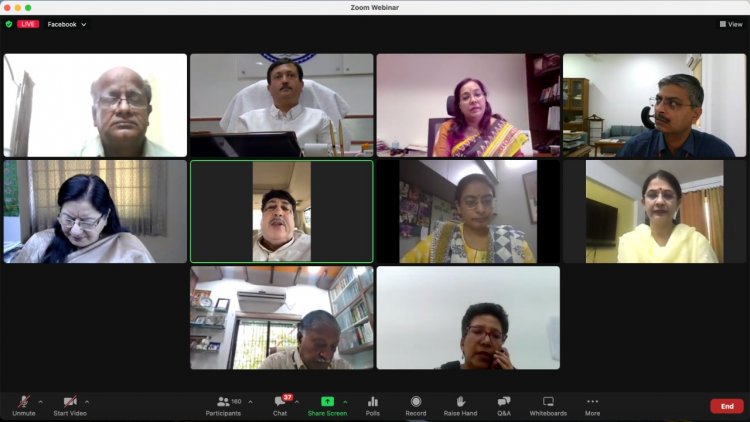
Speaking during a national webinar on cooperative university organized by the National Cooperative Union of India (NCUI), Najma Akhtar, Vice Chancellor (VC), Jamia University said that a cooperative university would be better than traditional universities. She felt that at a time when cooperatives have been neglected, the setting up of a cooperative university will fill a big void in the cooperative education system benefiting the members and the wider community. She further said that the cooperative university would give a big boost to social justice, cooperative principles and values.
The webinar was held at a time when establishing a cooperative university is key to the agenda of the government, and Amit Shah, Union Cooperation Minister, has constantly highlighted this priority of the government. NCUI has come up with a special issue of the monthly magazine The Cooperator with a focus on the papers written by experts containing diverse views on the formation of the cooperative university. The webinar was attended by key representatives of the cooperative sector along with educationists, researchers and academicians working in the cooperative sector.
Akhtar said that the setting up of a cooperative university would give a boost to cooperative education with an emphasis on classroom teaching and practical education. The cooperative university will help the students, faculty and other stakeholders to shape the learning process in a true cooperative spirit. Akhtar further said that there would be a big need to attract youth to the cooperative sector. The cooperative university, she hoped, will become a centre of excellence (CoE) in innovation and entrepreneurship.
Dr Yashwant Dongre, Vice Chancellor, Chanakya University, Bangalore in his keynote address said that ideally a cooperative university might be started by cooperatives, but in the changing scenario with the creation of a separate Ministry of Cooperation, a cooperative university might be set up by the government as a CoE in which the cooperative organizations may be the partners. He further said that as the New Education Policy laid emphasis on a multi-disciplinary approach, the nature of the cooperative university should be multi-disciplinary. He said that though a few universities today offered Bachelor’s and Master’s Degree in Cooperation, the cooperative courses here are not popular, so the setting up of a specialized cooperative university is the need of the hour. He said that the cooperative university must assure jobs to the youth in the cooperative sector. He said that the focus of the university should be research, extension and teaching.
Dileep Sanghani, President of NCUI and Chairman of IFFCO, said in his presidential address that the setting up of a cooperative university was in accordance with the government’s thrust on Sahkar se Samriddhi (Prosperity Through Cooperation). He emphasized the need for setting up a cooperative university as many diplomas offered by cooperative training organizations do not have recognition, which hampers the employment prospects of the youth. He said that setting up a university would give recognition to various diploma and certificate programmes, thus brightening job prospects.
GH Amin, former President of NCUI and Chairman of COBI, said that as cooperatives had to compete in the market economy, they needed to have a strong HR policy, for which setting up a cooperative university was pivotal. He said that at present many found jobs in cooperative organizations, but they did not have exposure to cooperative learning, so setting up a cooperative university was the need of the hour.
Dr KK Tripathy, OSD to Union Minister of Cooperation, highlighted the fact that at a time when there was a lack of quality research in the cooperative sector, the cooperative university would take up this field as its prime focus. He said that before setting up the university, a proper assessment needed to be made of the education and training needs of the cooperative organizations.
Hema Yadav, Director, VAMNICOM spoke of the need for universalization of cooperative education, and for this, the setting up of a cooperative university was vital. She said that while the cooperative university should formulate different models of programmes, it must provide employment opportunities going beyond the curriculum.
Prof Shailendra from IRMA in his presentation said that the cooperative at a time when the study of cooperation was neglected in universities, setting up a cooperative university dedicated to the cause of cooperatives in accordance with cooperative principles and values was very important. He further said that when there was instability in the society, the cooperative university would explore the idea of an alternative society.
Mallika Kumar, Associate Professor, Shriram College of Commerce, that the cooperative university would bridge a big knowledge and awareness gap in the field of cooperatives. She said that while the university should design innovative courses according to the needs of cooperatives, it must lay focus on experiential learning to attract youth to the cooperative sector.
Palak, Research Manager, SEWA in her presentation while giving an overview of SEWA federation activities, highlighted that the cooperative university should aim to provide a platform to informal women workers.
Earlier, Dr Sudhir Mahajan, Chief Executive, NCUI, in his opening remarks, while highlighting the need for a cooperative university, also spoke about the new initiatives of NCUI like starting of NCUI Haat, Incubation Centre, Entrepreneurship Development Cell, signing of MoUs with NIESBUD, Rainmatter Foundation of India, National Association of Street Vendors of India, training more than 7000 students under Coop Connect Programme etc. The webinar was coordinated and anchored by Sanjay Verma, Director, Pub/PR, NCUI.



 Join the RuralVoice whatsapp group
Join the RuralVoice whatsapp group

















